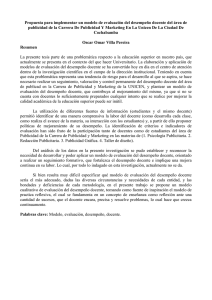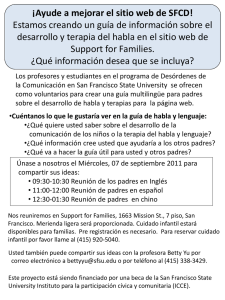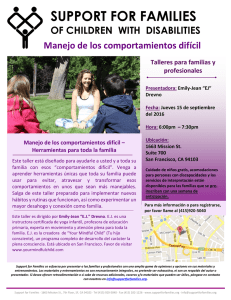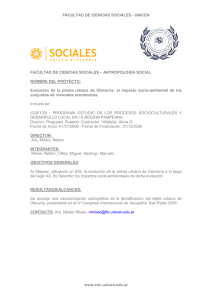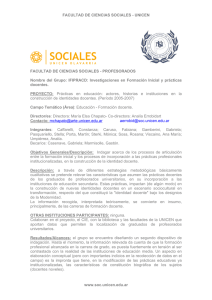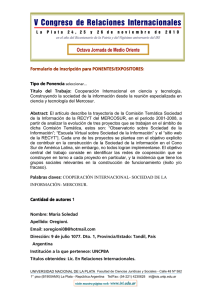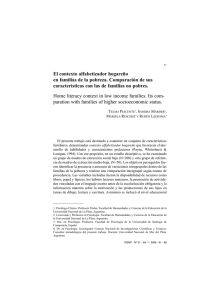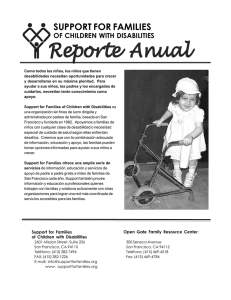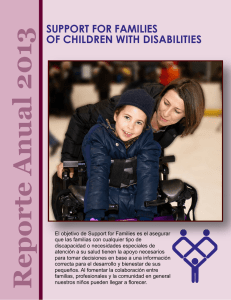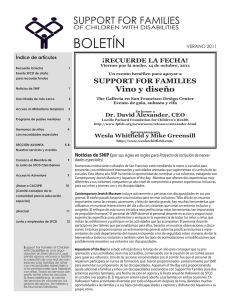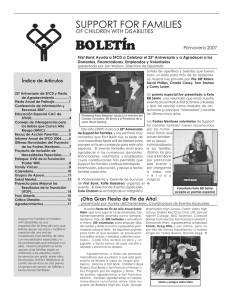CONOCIMIENTO EN ACCIÓN: MÉTODOS DE ASIGNACION de
Anuncio
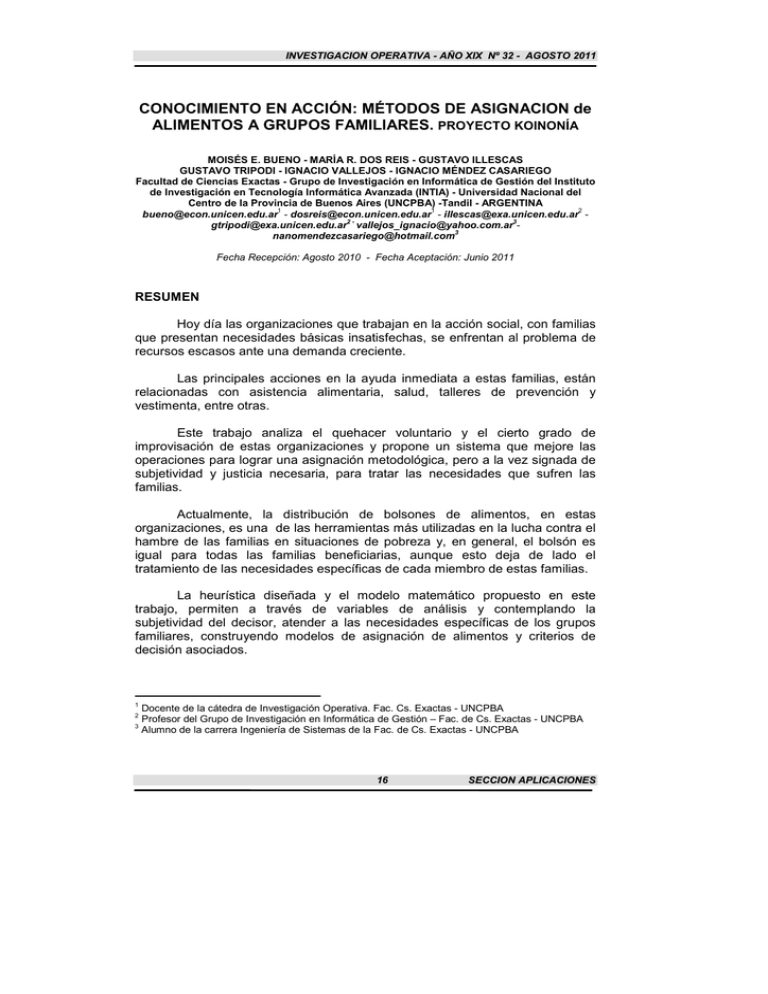
INVESTIGACION OPERATIVA - AÑO XIX Nº 32 - AGOSTO 2011 CONOCIMIENTO EN ACCIÓN: MÉTODOS DE ASIGNACION de ALIMENTOS A GRUPOS FAMILIARES. PROYECTO KOINONÍA MOISÉS E. BUENO - MARÍA R. DOS REIS - GUSTAVO ILLESCAS GUSTAVO TRIPODI - IGNACIO VALLEJOS - IGNACIO MÉNDEZ CASARIEGO Facultad de Ciencias Exactas - Grupo de Investigación en Informática de Gestión del Instituto de Investigación en Tecnología Informática Avanzada (INTIA) - Universidad Nacional del Centro de la Provincia de Buenos Aires (UNCPBA) -Tandil - ARGENTINA [email protected] - [email protected] - [email protected] [email protected] - [email protected]@hotmail.com3 Fecha Recepción: Agosto 2010 - Fecha Aceptación: Junio 2011 RESUMEN Hoy día las organizaciones que trabajan en la acción social, con familias que presentan necesidades básicas insatisfechas, se enfrentan al problema de recursos escasos ante una demanda creciente. Las principales acciones en la ayuda inmediata a estas familias, están relacionadas con asistencia alimentaria, salud, talleres de prevención y vestimenta, entre otras. Este trabajo analiza el quehacer voluntario y el cierto grado de improvisación de estas organizaciones y propone un sistema que mejore las operaciones para lograr una asignación metodológica, pero a la vez signada de subjetividad y justicia necesaria, para tratar las necesidades que sufren las familias. Actualmente, la distribución de bolsones de alimentos, en estas organizaciones, es una de las herramientas más utilizadas en la lucha contra el hambre de las familias en situaciones de pobreza y, en general, el bolsón es igual para todas las familias beneficiarias, aunque esto deja de lado el tratamiento de las necesidades específicas de cada miembro de estas familias. La heurística diseñada y el modelo matemático propuesto en este trabajo, permiten a través de variables de análisis y contemplando la subjetividad del decisor, atender a las necesidades específicas de los grupos familiares, construyendo modelos de asignación de alimentos y criterios de decisión asociados. 1 Docente de la cátedra de Investigación Operativa. Fac. Cs. Exactas - UNCPBA Profesor del Grupo de Investigación en Informática de Gestión – Fac. de Cs. Exactas - UNCPBA 3 Alumno de la carrera Ingeniería de Sistemas de la Fac. de Cs. Exactas - UNCPBA 2 16 SECCION APLICACIONES INVESTIGACION OPERATIVA - AÑO XIX Nº 32 - AGOSTO 2011 PALABRAS CLAVE: Función de utilidad multiatributo – Asignación - Sistema de apoyo a la decisión - Ponderación lineal – Heurística - Gestión del conocimiento - Acción social. ABSTRACT Today the organizations that work in the social action with families that suffer basic unsatisfied necessities, they face the problem of scant resources an increasing demand. The principal actions in the immediate help to these families are related to food assistance, health, workshops of prevention and gown, between others. This work analyzes the voluntary occupation and certain degree of improvisation of these organizations, and they proposes a system that improves the operations to achieve a methodological assignment, but simultaneously sealed of subjectivity and necessary justice; to treat the needs that suffer the families. Nowadays, the distribution of food handbags, in these organizations, is one of the tools most used in the fight against the hunger of the families in poverty situations and, in general, the handbag is equal for all families’ beneficiaries. Although, this omits the treatment of the specific needs of every member of these families. The designed heuristic one and the mathematical model proposed in this work allow through some variables of analysis, at the same time that it is contemplated the decisor’s subjectivity, to deal with the specific needs of the familiar groups. In that way they build some models of food assignment and associate decision functions. KEY WORDS: Function of usefulness multiattribute – Allocation - Decision Support System - Linear weighting – Heuristics - Knowledge Management Social action. 17 SECCION APLICACIONES
